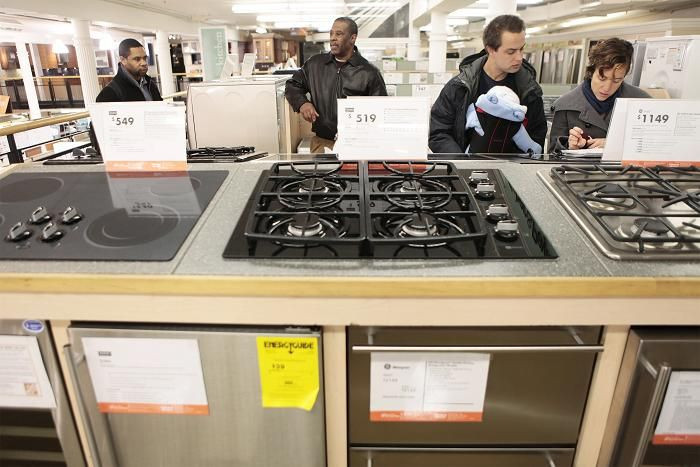Latest US Retail Sales Data Shows Consumers Are Worried, Cautious

Americans bought more building supplies and cars last month, but the increase in November's overall retail spending was softer than expected and did not match -- let alone surpass -- October's underwhelming increase in U.S. consumption.
In other words, the Commerce Department's latest figures on consumer spending show that it remains as weak today as it did at the latter part of the third quarter.
Superstorm Sandy had pushed sales down by 0.3 percent in October so some rebound was inevitable. Damaged or destroyed cars had to be replaced, so November's car sales jumped 1.4 percent, and the post-hurricane cleanup boosted purchases of building supplies by 1.6 percent.
Besides a rebound after Sandy, November sales probably were boosted by the release of the new Nintendo Wii U; electronics sales jumped 2.5 percent, Capital Economics said Thursday in a note.
"Given that the level of sales is no higher than in September, the catchup after Sandy may boost sales in December, too," Capital Economics said. "But the bottom line is that annualized consumption growth in the fourth quarter will struggle to beat the third quarter’s 1.4 percent."
Analysts generally expected the November retail sales figures to come in between 0.5 percent and 0.9 percent higher than October's level, according to the various surveys.
"November’s retail sales figures didn’t alter our view that consumption is struggling to find momentum. With consumer confidence now falling, hopes that retailers would enjoy a robust holiday shopping season are fading," Capital Economics said.
Part of the reason consumer confidence is faltering and thus consumer spending is weak -- despite a fairly robust holiday shopping season -- is because of concerns about future tax policy and tepid job creation. The University of Michigan released preliminary December consumer sentiment figures indicating consumers are losing confidence as they head toward the prospect of a higher tax bill by the April 15 filing deadline. Personal income is stagnant and hiring is nowhere near keeping up with demand.
"It was a dramatic drop," Jacob Oubina, senior U.S. economist for RBC Capital Markets, told the Wall Street Journal. "The consumer's not all of a sudden going to pick up the baton."
A slightly more sanguine view of the trajectory of consumer spending came from Moody's Analytics Inc.
“The details look pretty solid,” Ryan Sweet, a senior economist at Moody’s Analytics, told Bloomberg News, which also noted that some of the weakness in November's numbers stemmed from cheaper gasoline, the price of which posted its biggest drop in four years.
"The consumer is continuing to support the recovery, which is important because identifying the sources of growth is becoming increasingly difficult," Sweet said. "The burden is really starting to fall on the consumer.”
© Copyright IBTimes 2024. All rights reserved.






















